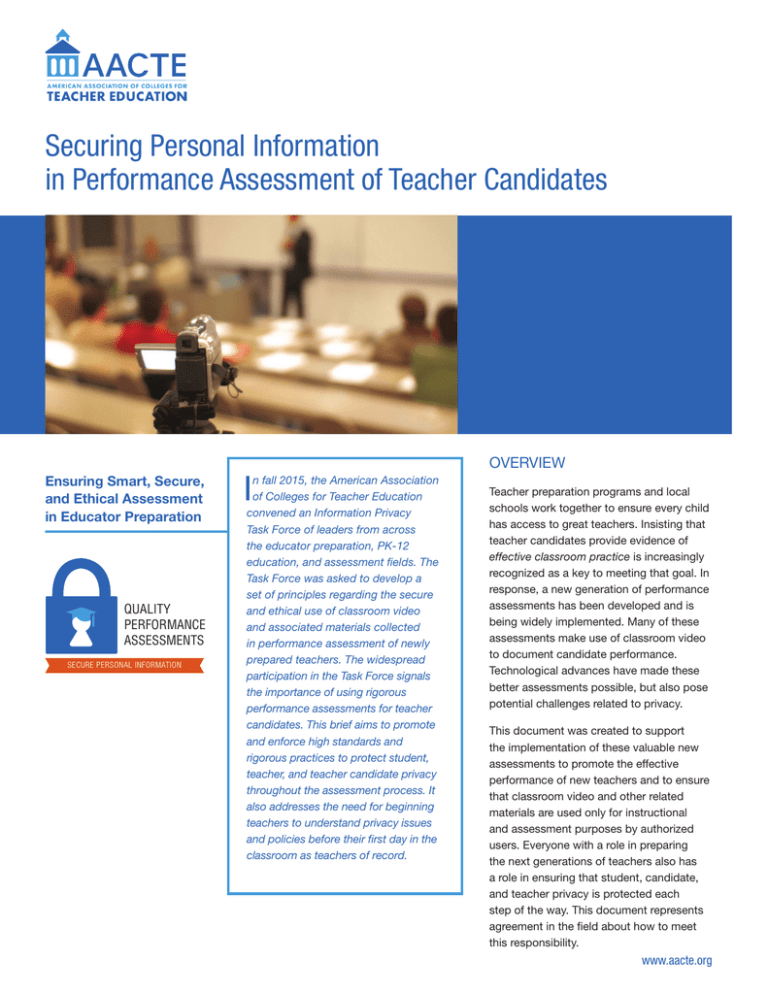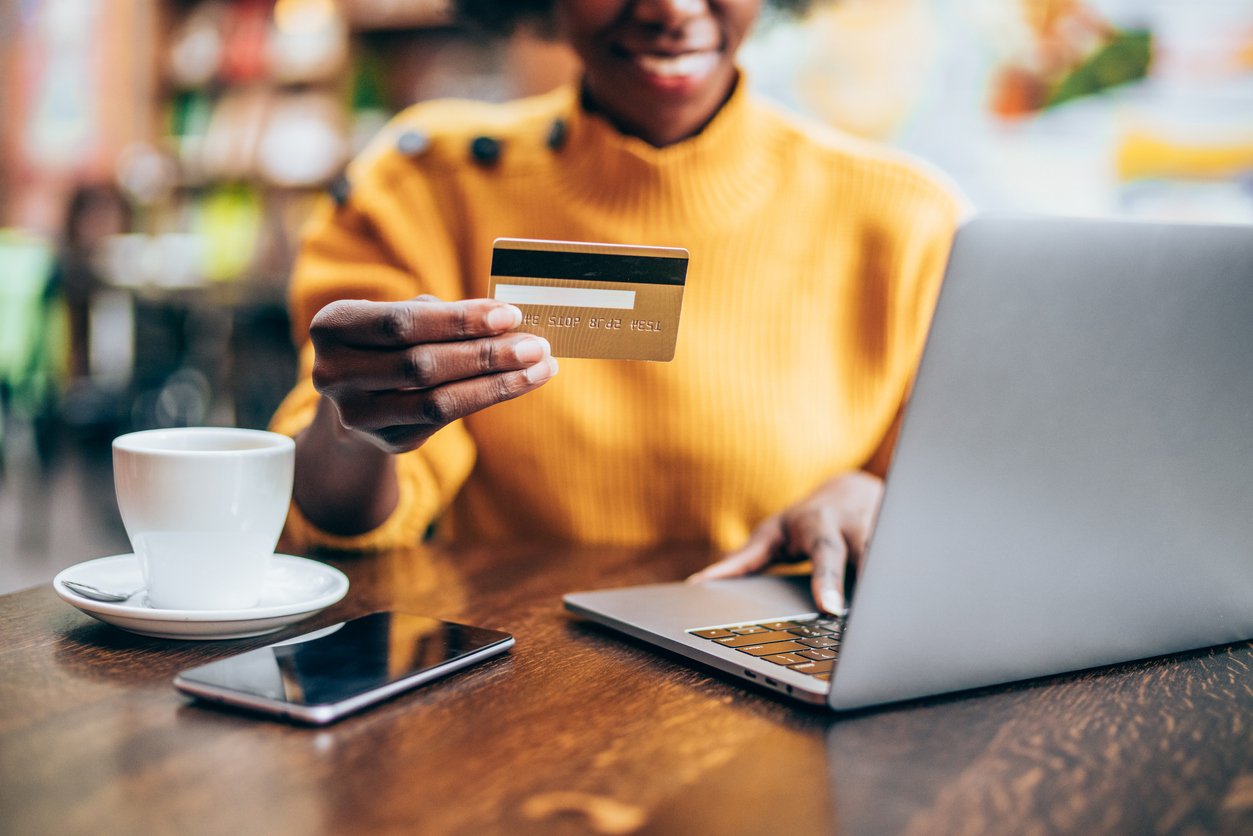Securing personal information in performance assessment
Securing Personal Information in Performance Assessment
Tips for Keeping Your Personal Information Secure
When it comes to performance assessments, one crucial aspect that often gets overlooked is the security of personal information. In today's digital age, protecting your sensitive data is more important than ever. To help you keep your personal information secure, we have gathered some valuable tips:

1. Use Strong and Unique Passwords:
Creating a strong and unique password is the first step towards securing your personal information. Avoid using common passwords such as "123456" or "password." Instead, create a password with a combination of numbers, letters, and special characters.
2. Enable Two-Factor Authentication:
Two-factor authentication adds an extra layer of security to your accounts by requiring an additional verification step, such as entering a code sent to your phone. Enable this feature wherever possible.
3. Be Cautious of Phishing Attempts:
Phishing is a fraudulent practice where scammers try to trick you into revealing sensitive information. Be wary of suspicious emails, messages, or phone calls asking for personal details. Always verify the source before sharing any information.
4. Update Your Software Regularly:
Software updates often include security patches that help protect your devices from vulnerabilities. Make sure to install updates promptly to ensure you have the latest security features.
5. Use Secure Wi-Fi Networks:
Avoid using public Wi-Fi networks for sensitive transactions. Hackers can easily intercept data transmitted over public networks. Instead, connect to secured Wi-Fi networks or use a virtual private network (VPN) for added protection.
6. Secure Your Social Media Accounts:
Review your privacy settings on social media platforms and limit the amount of personal information you share publicly. Additionally, be cautious of accepting friend requests or interacting with suspicious accounts.
7. Shred Important Documents:
When disposing of documents containing personal information, such as bank statements or medical records, make sure to shred them before discarding. This prevents individuals from accessing your sensitive data through dumpster diving.
8. Monitor Your Accounts Regularly:
Keep a close eye on your financial statements, credit reports, and any other accounts that contain your personal information. Report any suspicious activity or discrepancies immediately.
9. Educate Yourself:
Stay informed about the latest security threats and best practices for safeguarding personal information. Take advantage of free resources, such as online cybersecurity courses or informational websites.
10. Use Encryption:
Encrypting your sensitive files and communications adds an extra layer of protection, making it harder for unauthorized individuals to access your data. Use encryption tools when handling sensitive information.
Top 15 Tips for Securing Your Personal Information

1. Regularly Update Your Software:
Keeping your software up to date is essential for protecting your personal information. Software updates often include security enhancements that address vulnerabilities.
2. Use Strong Passwords:
Create strong passwords that contain a mix of uppercase and lowercase letters, numbers, and symbols. Avoid using easily guessable passwords like your birthdate or the word "password."
3. Enable Multi-Factor Authentication:
Multi-factor authentication adds an extra layer of security by requiring a second form of verification, such as a fingerprint or a unique code sent to your phone.
4. Be Cautious of Suspicious Emails:
Phishing emails are a common way for hackers to gain access to personal information. Be skeptical of emails asking for sensitive information or containing suspicious links.
5. Protect Your Social Security Number:
Never provide your social security number unless it's absolutely necessary. Keep it in a secure place and avoid carrying your social security card with you.
6. Secure Your Wi-Fi Network:
Ensure your home Wi-Fi network is password protected and uses strong encryption. Avoid using public Wi-Fi networks for sensitive activities like online banking.
7. Use Secure Websites for Online Transactions:
When making online purchases or entering personal information, look for websites with "https://" in the URL. This indicates that the website encrypts data during transmission.
8. Be Selective About Sharing Personal Information:
Only share personal information with entities you trust and for legitimate purposes. Avoid providing unnecessary information or sharing it on social media.
9. Review Privacy Settings on Social Media:
Regularly review and update the privacy settings on your social media accounts. Limit the amount of personal information visible to the public.
10. Use a Firewall:
A firewall acts as a barrier between your computer and unauthorized access. Enable a firewall on your devices to protect against hackers and malware.
11. Securely Store and Dispose of Personal Documents:
Store physical copies of important documents, such as passports or birth certificates, in a secure location. When discarding them, shred the documents to prevent identity theft.
12. Be Mindful of Unsecured Public Computers:
Avoid accessing personal accounts on public computers, as they may have keyloggers or malware installed. If you must use a public computer, ensure you log out of all accounts and clear browsing history.
13. Regularly Backup Your Data:
Backing up your data ensures that you won't lose important files in case of a security breach or hardware failure. Use reputable cloud storage services or external hard drives for backups.
14. Educate Yourself About Common Scams:
Stay informed about common scams and techniques used by cybercriminals to target personal information. Awareness is key to avoiding becoming a victim.
15. Be Vigilant and Trust Your Instincts:
If something feels off or too good to be true, trust your instincts. Take the necessary steps to protect your personal information and report any suspicious activity.
By following these tips, you can significantly enhance the security of your personal information during performance assessments and in your day-to-day life. Remember, the safety of your data is in your hands, so prioritize its protection every step of the way.